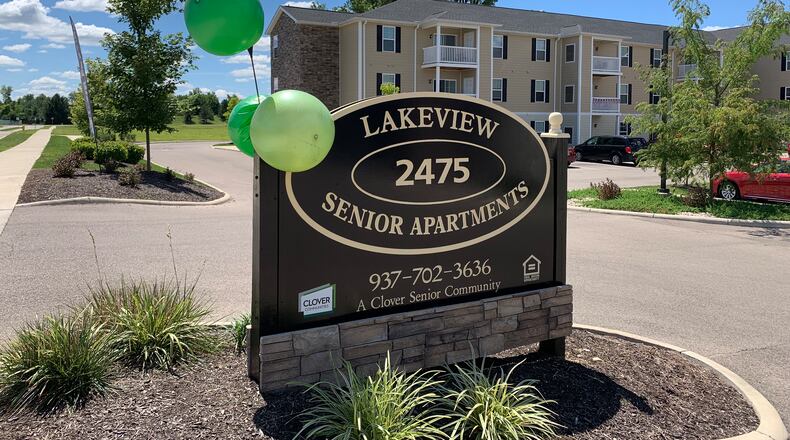A multi-year investigation by the organizations found that routes between public areas and from parking to apartment units could be blocked by parked cars, and have access points that discharge people in wheelchairs into traffic, per the filing. The properties also lack adequate disability-accessible parking, have showers and kitchens that those in wheelchairs are unable to use safely, and have patio or balcony doors with thresholds too high for a wheelchair to access.
The violations were exacerbated, the complaint further alleged, by the Clover Group advertising the units as “fully handicapped accessible” and as senior housing for individuals over 55.
Several of the fair housing groups are plaintiffs in a related lawsuit, filed in March last year, in which Clover Group entities are alleged to have engaged in other forms of disability discrimination by refusing to grant reasonable accommodations and by imposing a surcharge for accessible units.
“We know that people with disabilities face a more lengthy, costly, and difficult process whenever they conduct a housing search. There is a severe shortage of housing that meets the accessibility needs of individuals with physical disabilities,” said MVFHC President and CEO Jim McCarthy. “The Fair Housing Center is glad to have achieved an agreement that will improve the accessibility of Clover’s properties, and thus enable their senior residents to comfortably age in place.”
The settlement requires an estimated $3 million in retrofits to public and common areas at the properties, including accessible routes around the exterior and common areas of the building, adding ramps and curb cuts, and replacing sidewalks that have excessive slopes.
The agreement also requires $3.375 million for mobility-related modifications to individual units at the request of any resident at any of the 50 properties. This could include replacing sliding doors at patios or balconies for a wider opening and lower threshold, ramps, grab bars, replacing bathroom vanities or sinks, installing roll-in or hand-held showers, lowering kitchen countertops, and other accommodations.
Clover Group will pay $750,000 to fair housing organizations, including Miami Valley Fair Housing Center, for resources expended to investigate the alleged violations and for attorneys’ fees, and any Clover Group employees involved in the design and construction of multifamily housing will complete training on the accessibility requirements of the Fair Housing Act.
The case is important, staff at Miami Valley Fair Housing Center say, because the supply of affordable, disability-accessible housing is already thin.
“The number of properties that are have accessible features is just not enough,” said Miranda Wilson, director of Investigations & Enforcement at Miami Valley Fair Housing Center. “There are wait lists for accessible units, and once people get into them, they obviously want to stay. Once you find a place that meets your needs, you’re not going to want to move. So that means we need to be producing a whole lot more accessible units than we are.”
“We have a large Boomer population that want to stay in this community,” she said. “They want to stay in their homes, and so making sure there are accessible housing options for them makes all the difference.”
About the Author

